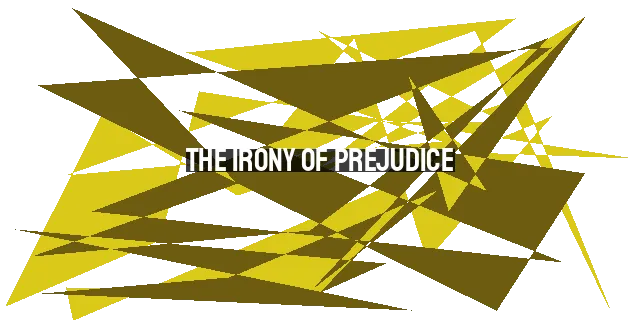Christian Hub
1 year ago
The Nearness of Jesus's Return: Living in the Last Days
The question of when Jesus will come back is one that has intrigued believers for centuries. It is a question that has been asked by both young and old, and it is a question that does not have a definitive answer. However, the Bible does provide some guidance on this topic.
When my twin six-year-old boys asked me this question while I was driving them to school, I was taken aback. I didn't want to disappoint them, but I also didn't want to give them false information. So, I had to admit that I didn't know the exact year when Jesus will return. I told them that even Jesus himself, when he was on earth, said that he didn't know the exact time of his return (Matthew 24:36; Mark 13:32). I also emphasized that anyone who claims to know the year is false.
But while we don't know the exact year, we do know that Jesus's return is near. When the New Testament says that his coming is near, it means that it is the next major event in the history of the world. Nothing stands in the way of his return. After his perfect life, sacrificial death, resurrection, and ascension, the next major movement in history is the second coming of Christ.
In the church age, there are no specific events that must happen before his return. What the Bible promises will happen at the end is already happening to some extent around the world today. We are called to evangelize the nations and to live holy lives, hastening his coming (Matthew 28:19; 2 Peter 3:11–12). But we must also remember that Jesus could surprise us. His coming is the next big thing, and it could happen at any moment.
Four specific texts in the New Testament tell us that the end is near. In Romans 13:12, Paul writes, "The night is far gone; the day is at hand." The dark season of human history has passed with the coming of Christ, and the day of his coming has drawn near. Hebrews 10:24–25 urges Christians not to neglect meeting together, as the day is drawing near. The signs of the end are already happening now. 1 Peter 4:7 states that the end of all things is at hand. Regardless of whether Peter was referring to the destruction of Jerusalem in 70 A.D., he makes it clear that the end of all things is near. James 5:8 plainly says, "The coming of the Lord is at hand." Jesus's return is near, and we must be ready for it.
But how do we reconcile the New Testament's claim that Christ's coming is near with the fact that it has been two thousand years and he has not yet returned? It's important to understand that the concept of "nearness" in the Bible is not about shortness of time as we conceive of it. It is about nearness in history as God crafts it. We are living in the last days, and we don't know how long this season of history will last. But we do know that the next major event is Jesus's return.
The Bible presents history as linear, with a beginning and an end. It is God's story, and it is going somewhere. The first days were the days of the patriarchs and the history of Israel. Then came the days of Jesus, and since then, we have been living in the last days. This present season of history, which began with the early church, is the last one until Jesus comes again. The next major event is not some great persecution or a rapture of Christians, but the second coming of Christ.
As we live in the last days, we must anticipate, pray for, and live in light of Jesus's return. We must continue to fulfill the directives of the church age, such as evangelizing the nations and living holy lives. We must also be prepared for his coming, knowing that it could happen at any moment. The coming of Christ is near, and we must be ready.
In conclusion, while we may not know the exact year when Jesus will return, we do know that his coming is near. The Bible tells us that we are living in the last days, and that the next major event in history is the second coming of Christ. We must be prepared and live in light of his return.
When my twin six-year-old boys asked me this question while I was driving them to school, I was taken aback. I didn't want to disappoint them, but I also didn't want to give them false information. So, I had to admit that I didn't know the exact year when Jesus will return. I told them that even Jesus himself, when he was on earth, said that he didn't know the exact time of his return (Matthew 24:36; Mark 13:32). I also emphasized that anyone who claims to know the year is false.
But while we don't know the exact year, we do know that Jesus's return is near. When the New Testament says that his coming is near, it means that it is the next major event in the history of the world. Nothing stands in the way of his return. After his perfect life, sacrificial death, resurrection, and ascension, the next major movement in history is the second coming of Christ.
In the church age, there are no specific events that must happen before his return. What the Bible promises will happen at the end is already happening to some extent around the world today. We are called to evangelize the nations and to live holy lives, hastening his coming (Matthew 28:19; 2 Peter 3:11–12). But we must also remember that Jesus could surprise us. His coming is the next big thing, and it could happen at any moment.
Four specific texts in the New Testament tell us that the end is near. In Romans 13:12, Paul writes, "The night is far gone; the day is at hand." The dark season of human history has passed with the coming of Christ, and the day of his coming has drawn near. Hebrews 10:24–25 urges Christians not to neglect meeting together, as the day is drawing near. The signs of the end are already happening now. 1 Peter 4:7 states that the end of all things is at hand. Regardless of whether Peter was referring to the destruction of Jerusalem in 70 A.D., he makes it clear that the end of all things is near. James 5:8 plainly says, "The coming of the Lord is at hand." Jesus's return is near, and we must be ready for it.
But how do we reconcile the New Testament's claim that Christ's coming is near with the fact that it has been two thousand years and he has not yet returned? It's important to understand that the concept of "nearness" in the Bible is not about shortness of time as we conceive of it. It is about nearness in history as God crafts it. We are living in the last days, and we don't know how long this season of history will last. But we do know that the next major event is Jesus's return.
The Bible presents history as linear, with a beginning and an end. It is God's story, and it is going somewhere. The first days were the days of the patriarchs and the history of Israel. Then came the days of Jesus, and since then, we have been living in the last days. This present season of history, which began with the early church, is the last one until Jesus comes again. The next major event is not some great persecution or a rapture of Christians, but the second coming of Christ.
As we live in the last days, we must anticipate, pray for, and live in light of Jesus's return. We must continue to fulfill the directives of the church age, such as evangelizing the nations and living holy lives. We must also be prepared for his coming, knowing that it could happen at any moment. The coming of Christ is near, and we must be ready.
In conclusion, while we may not know the exact year when Jesus will return, we do know that his coming is near. The Bible tells us that we are living in the last days, and that the next major event in history is the second coming of Christ. We must be prepared and live in light of his return.



POST COMMENT
For post a new comment. You need to login first. Login
COMMENTS(0)
No Comment yet. Be the first :)